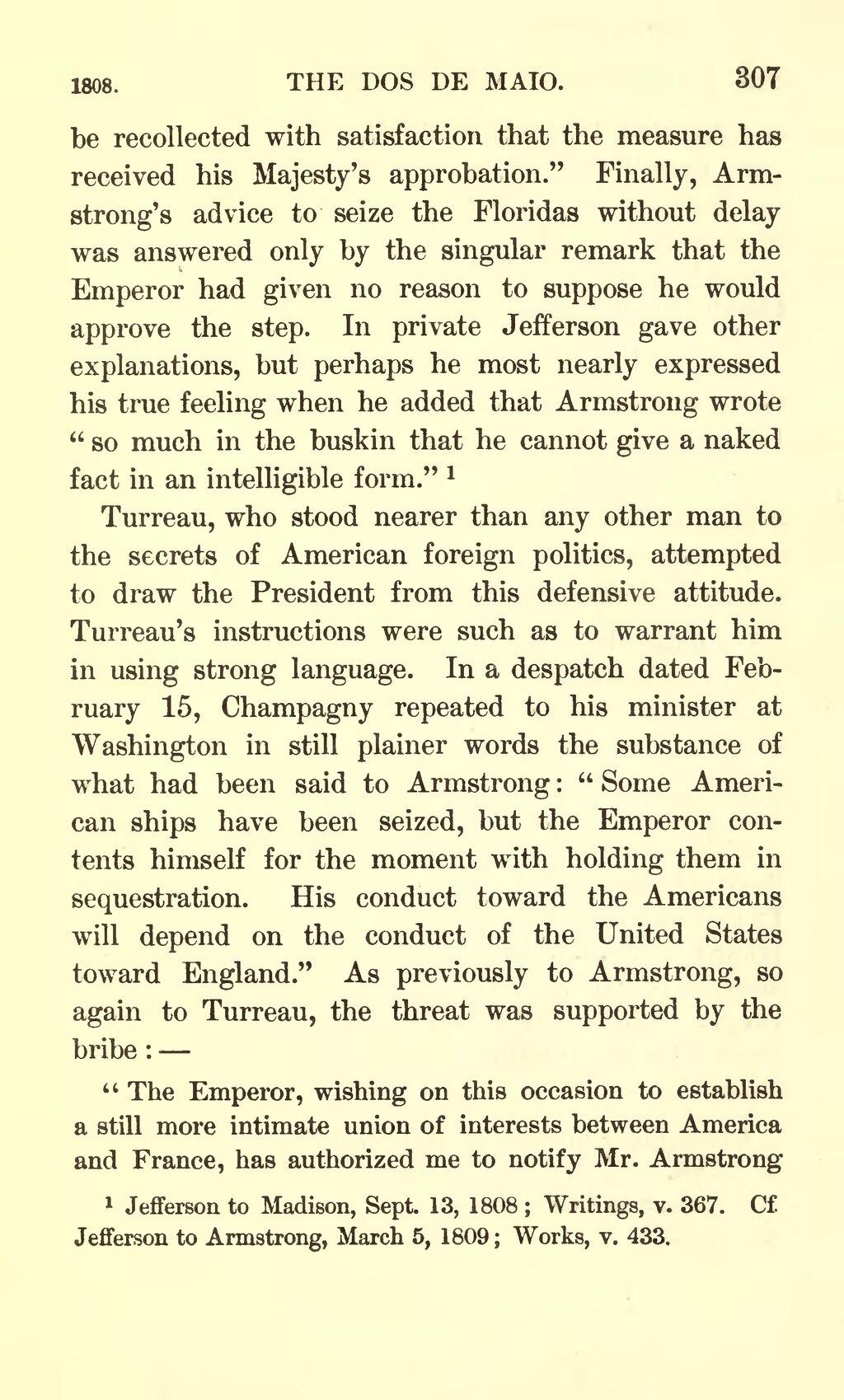be recollected with satisfaction that the measure has received his Majesty's approbation." Finally, Armstrong's advice to seize the Floridas without delay was answered only by the singular remark that the Emperor had given no reason to suppose he would approve the step. In private Jefferson gave other explanations, but perhaps he most nearly expressed his true feeling when he added that Armstrong wrote "so much in the buskin that he cannot give a naked fact in an intelligible form."[1]
Turreau, who stood nearer than any other man to the secrets of American foreign politics, attempted to draw the President from this defensive attitude. Turreau's instructions were such as to warrant him in using strong language. In a despatch dated February 15, Champagny repeated to his minister at Washington in still plainer words the substance of what had been said to Armstrong: "Some American ships have been seized, but the Emperor contents himself for the moment with holding them in sequestration. His conduct toward the Americans will depend on the conduct of the United States toward England." As previously to Armstrong, so again to Turreau, the threat was supported by the bribe:—
- "The Emperor, wishing on this occasion to establish a still more intimate union of interests between America and France, has authorized me to notify Mr. Armstrong
